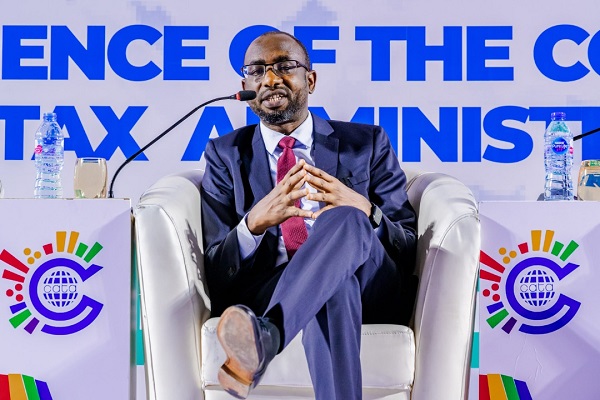
Nigeria’s groundbreaking efforts in the development of the Nigeria Startup Act were celebrated by global technology ecosystem stakeholders during the Deep Tech Roundtable, held as part of ‘The Assembly,’ one of the strategic sessions of TNW.
The Next Web (TNW) Conference took place from June 15 to 16, 2023, at the Taets Art and Event Park in Amsterdam. The director-general/CEO of the National Information Technology Development Agency (NITDA), Mallam Kashifu Abdullahi, attended the event as a special guest and actively participated in various roundtable sessions, including ‘The Assembly’ and the Startup Genome Ecosystem Leadership Forum.
The director of Information Technology Infrastructure Solutions, Dr. Usman Abdullahi represented the DG and highlighted some of Nigeria’s initiatives aimed at fostering the growth and development of the country’s startup ecosystem.
Abdullahi emphasised that the Nigeria Startup Act (NSA), a key legislation co-created by ecosystem stakeholders, exemplifies the country’s approach to Developmental Regulation. This approach is one of the pillars of the National Digital Economy Policy and Strategy for a Digital Nigeria (NDEPS). The NSA project, a collaborative effort between Nigeria’s tech ecosystem and the Presidency, driven by the Federal Ministry of Communications and Digital Economy, aims to harness the potential of Nigeria’s digital economy through co-created regulations. The objectives of the Act include providing an enabling environment for the establishment, development and operation of startups in Nigeria, creating a legal and institutional framework for startup development, nurturing technology-related talent and positioning Nigeria’s startup ecosystem as the leading digital technology hub in Africa, boasting exceptional innovators with cutting-edge skills and exportable capacity.
The DG further explained that the Act consists of ten parts encompassing five drivers: collaboration, engagement, incentives, linkages and support. The Act seeks to enhance collaboration within the government and its interactions with ecosystem practitioners through the establishment of the National Council for Digital Innovation and Entrepreneurship. The council, presided over by the President as chairman, includes representatives from the executive arm of government, the director-general of NITDA as secretary and representatives from the Nigeria Computer Society, the Computer Professionals Registration Council of Nigeria and the Startup Consultative Forum. Its responsibilities include monitoring and evaluating regulatory frameworks, formulating and implementing policy guidelines, overseeing the harmonisation of laws and regulations, and fostering startup development in Nigeria. NITDA serves as the secretariat of the council, with the DG assuming the dual role of secretary and head of the secretariat.
Furthermore, Abdullahi highlighted the establishment of a startup support and engagement portal, serving as a comprehensive platform for startups to register with all relevant regulatory agencies of the government. This initiative aims to save time and reduce costs associated with individual engagements with multiple agencies. It also contributes to improving the ease of doing business within the tech ecosystem, aligning with the provisions of the Presidential Enabling Business Environment Council (PEBEC).
The NITDA boss also emphasised the establishment of a Startup Investment Seed Fund, managed by the Nigeria Sovereign Investment Authority (NSIA). The fund aims to support early-stage startups, hubs and other entities that contribute to the startup ecosystem. It will be funded annually with a minimum of N10,000,000,000.00 to finance labelled startups and provide seed funds, grants or loans.
He further indicated that these and many other provisions of the Act promise a bright future for startups in Nigeria. Nigeria hopes that the Act will serve as a powerful tool in fostering the development and sustainability of an enabling startup ecosystem in the country. He called on stakeholders to support the Secretariat in realising the Act’s potential.
A statement from the agency’s head of corporate affairs and external relations, Mrs. Hadiza Umar, mentioned that skateboarders in attendance praised Nigeria’s approach, considering it an excellent example of co-created regulation for others to emulate.
The director of policy and research at the Global Entrepreneurship Network (GEN), Matt Smith remarked that he has been closely following the unprecedented developments in Nigeria’s startup ecosystem. He explained that governments often struggle to empower entrepreneurs due to the complex range of reforms, policies and programmes spanning various ministerial and departmental portfolios. Without central coordination, such reforms can easily stall due to limited legislative capacity, disagreements between responsible departments, or the emergence of duplicate or competing initiatives. Nigeria’s innovative approach in crafting the Startup Act undoubtedly minimises such pitfalls, offers a promising future for the country’s entrepreneurship ecosystem and has already inspired similar startup acts around the world. He commended Nigeria for this innovative approach.


